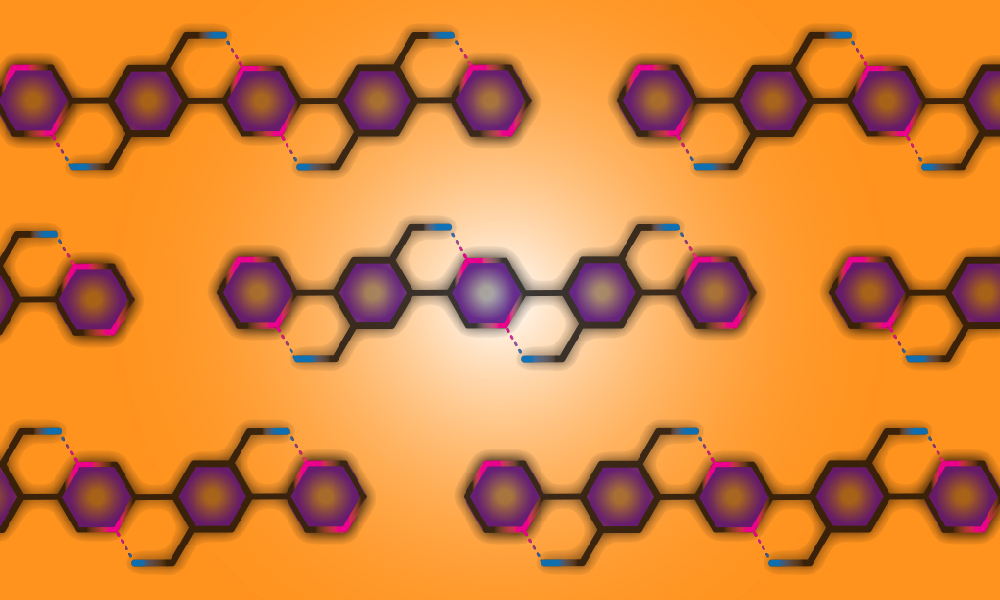Due to their interesting optical and electronic properties, polymers with π-conjugated backbones are found in a wide range of applications ranging from photovoltaic cells and light-emitting diodes to field-effect transistors.
The torsional conformation of the backbone of a π-conjugated macromolecule influences its shape, solubility, optoelectronic characteristics, rheological behavior, and ultimately solid-state functions.
In order to tailor these molecular, supramolecular, and materials properties, the desired coplanar conformation in π-conjugated systems can be locked by using dynamic noncovalent bonds. This is especially interesting since it allows an active control over coformation and thus the investigation of structure-property relationships.
In their recent feature article C. Zhu and Prof. L. Fang from Texas A&M review the syntheses, characterizations, and unique properties of conjugated molecules/polymers, involving a variety of bridging noncovalent bonds in the context of coplanar backbone conformation. In addition, challenges in this specific field are identified and discussed for future breakthroughs in exploiting the promising potential of non-covalent bond-bridged, π-conjugated organic materials.

















